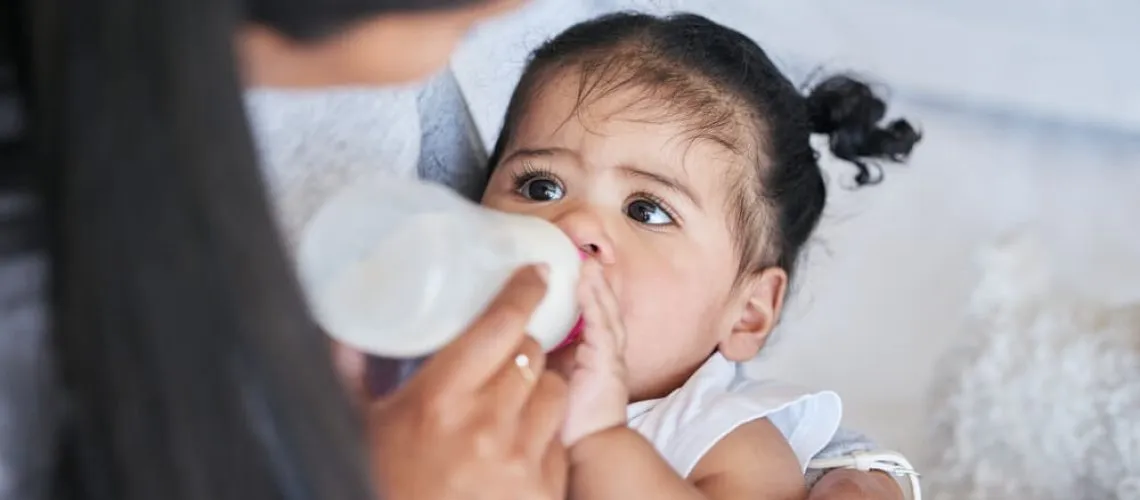Baby bottle tooth decay is a significant concern for many parents of young children. This condition, primarily caused by frequent and prolonged exposure to sugary liquids, leads to severe dental decay in infants and toddlers. Dr. Marielena Torres-Ricart from Kids World Pediatric in San Antonio, Texas, discusses the causes, prevention, and management of this preventable dental issue.
Understanding Baby Bottle Tooth Decay
WHAT IS BABY BOTTLE TOOTH DECAY?
Baby bottle tooth decay, or early childhood caries, occurs when sweetened liquids or those with natural sugars (like milk, formula, and fruit juice) cling to an infant’s teeth for a long time. Bacteria in the mouth thrive on this sugar and produce acids that attack the soft enamel of baby teeth.
RISK FACTORS
The risk increases if the baby frequently consumes sugary drinks, uses a bottle overnight, or has a bottle often as a comforter during the day. It’s also more common in children who aren’t receiving adequate fluoride.
Preventive Strategies
EARLY DENTAL HYGIENE PRACTICES
Introducing good oral hygiene at an early age is crucial. Start cleaning your baby’s gums with a clean, damp gauze pad or washcloth daily from the birth. Once teeth appear, brush them twice a day with a fluoride toothpaste and a soft, age-appropriate toothbrush.
MODIFY BOTTLE FEEDING HABITS
To prevent decay, avoid putting your child to sleep with a bottle filled with anything other than water. Also, encourage the use of a regular cup from around the first birthday. This transition not only supports dental health but also aids in the child’s motor development.
DIETARY ADJUSTMENTS
Limit sugary beverages and instead offer water between meals. Ensure that sugary or acidic drinks are only given during meals to minimize the exposure time of sugar on the teeth.
Comprehensive Dietary Recommendations
BALANCED DIET
Incorporate a diet rich in vegetables, fruits, and whole grains that are low in sugar. These foods promote a healthier oral environment and contribute to overall health.
AVOID STICKY AND SUGARY SNACKS
Foods that stick to the teeth can create prolonged acid attacks on enamel. Opt for less sticky snacks like apple slices, carrot sticks, or cheese.
WATER AS THE PRIMARY DRINK
Water is essential for maintaining oral health as it helps rinse away food particles and dilutes acids in the mouth. Fluoridated water is particularly beneficial as fluoride helps to remineralize tooth enamel and prevent decay.
Intervention and Management
REGULAR PEDIATRIC DENTAL VISITS
Schedule your child’s first dental visit by their first birthday. Regular check-ups can catch signs of early decay and allow for prompt intervention to prevent progression.
FLUORIDE TREATMENTS
Your pediatric dentist might recommend fluoride treatments to strengthen the enamel on your baby’s teeth. Fluoride varnish can be applied to both baby teeth and young permanent teeth as soon as they erupt.
PARENT EDUCATION
Understanding the factors contributing to baby bottle tooth decay is key for parents. Pediatric dentists can provide valuable education and practical tips during regular visits to ensure parents feel empowered to protect their children’s dental health.
Empowering Families to Fight Decay
The fight against baby bottle tooth decay is ongoing, but with informed strategies and proactive dental care, it is entirely preventable. Dr. Marielena Torres-Ricart is committed to guiding families in San Antonio to maintain optimal oral health for their young children, ensuring a healthy foundation for a lifetime of smiles.
Sources:
- American Dental Association – Preventing Baby Bottle Tooth Decay.
- American Academy of Pediatric Dentistry – Policy on Early Childhood Caries (ECC): Classifications, Consequences, and Preventive Strategies.
- National Institute of Dental and Craniofacial Research – Practical Oral Care for Infants and Children.

